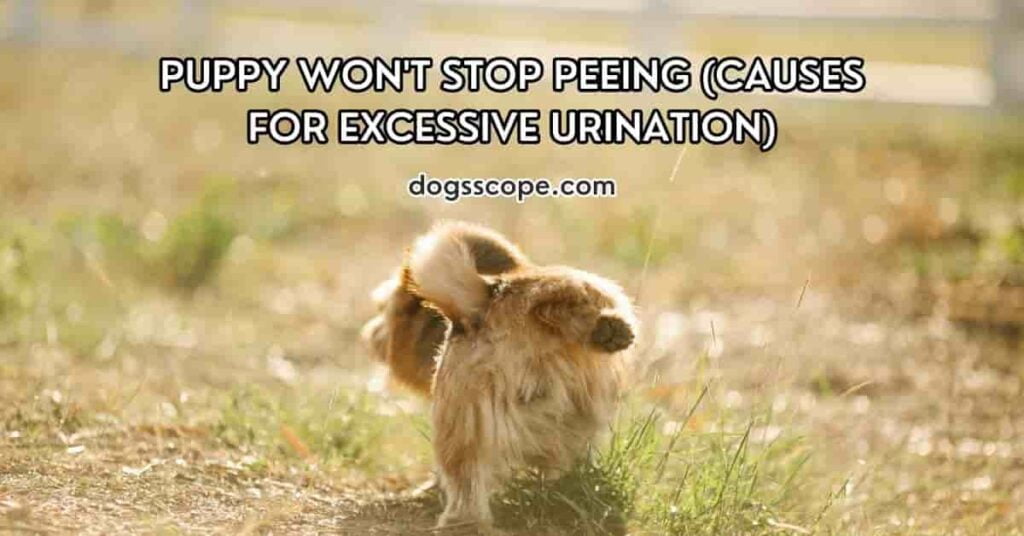Like a newborn who is special to the parents, a puppy is also precious to its pet owner. Most puppies are prone to many diseases, which may often go unnoticed. It is your responsibility as the pet owner to take care health of your pet if it is not feeling well. In this article, we will discuss the frequent urination in puppies and how to diagnose them.
Table of Contents
Is It Normal For A Puppy To Pee A Lot?
Yes, it is quite normal for a puppy to pee a lot, if the pup takes liquid substances, excited or happy when going out for a walk or playing.
How Often Is It Normal For A Puppy To Pee?
Puppies have a smaller bladder compared to adult dogs which can hold a little more pee. Usually, a 3-month-old puppy can hold urine in its bladder for three hours.
4 Reasons Why Does My Puppy Pee So Much?
Frequent urination in puppies can also be a sign of kidney disease, urinary tract infection, anxiety or diabetes. Below are some other medical and behavioral problems that you need to worry about.
Sponsored Ads
1. Kidney Problem – The function of kidneys in dogs is very similar to humans, filter out waste through urine. If there is any malfunction in the dog’s kidney you may notice some symptoms like an increase in water intake, inactivity, loss of appetite, weight loss and blood in the urine. Medical tests, medicines and vet inspections are needed to treat kidney-related problems. Foods to give a dog with kidney failure.
2. Urinary Tract Infection – It is a condition where infection occurs in urinary system organs. Common symptoms of UTI in puppies are cloudy or blood in urine, straining and frequently peeing small amounts. Diet modification, medication by the vet and increased fluid intake can be helpful to treat UTIs in puppies.
3. Separation Anxiety – The anxiety of owner separation or fear of noise, strangers and a new environment could be the reason for frequent urination. Provide your puppy with their favorite toys and meals to distract from separation anxiety. Loss of fluids can be treated by providing liquid substances and diets. Train your puppy to socialize with unknown persons and animals.
4. Diabetes – Diabetes happens when the dog’s body does not produce enough insulin or does not utilize it efficiently. You can see an increase in water consumption, appetite, weight loss and frequent urination. 10 to 30 mins daily exercise can drop sudden spikes in blood sugar levels. A special diabetic diet and insulin injections in vet observation are also helpful when dealing with diabetes.
Sponsored Ads

